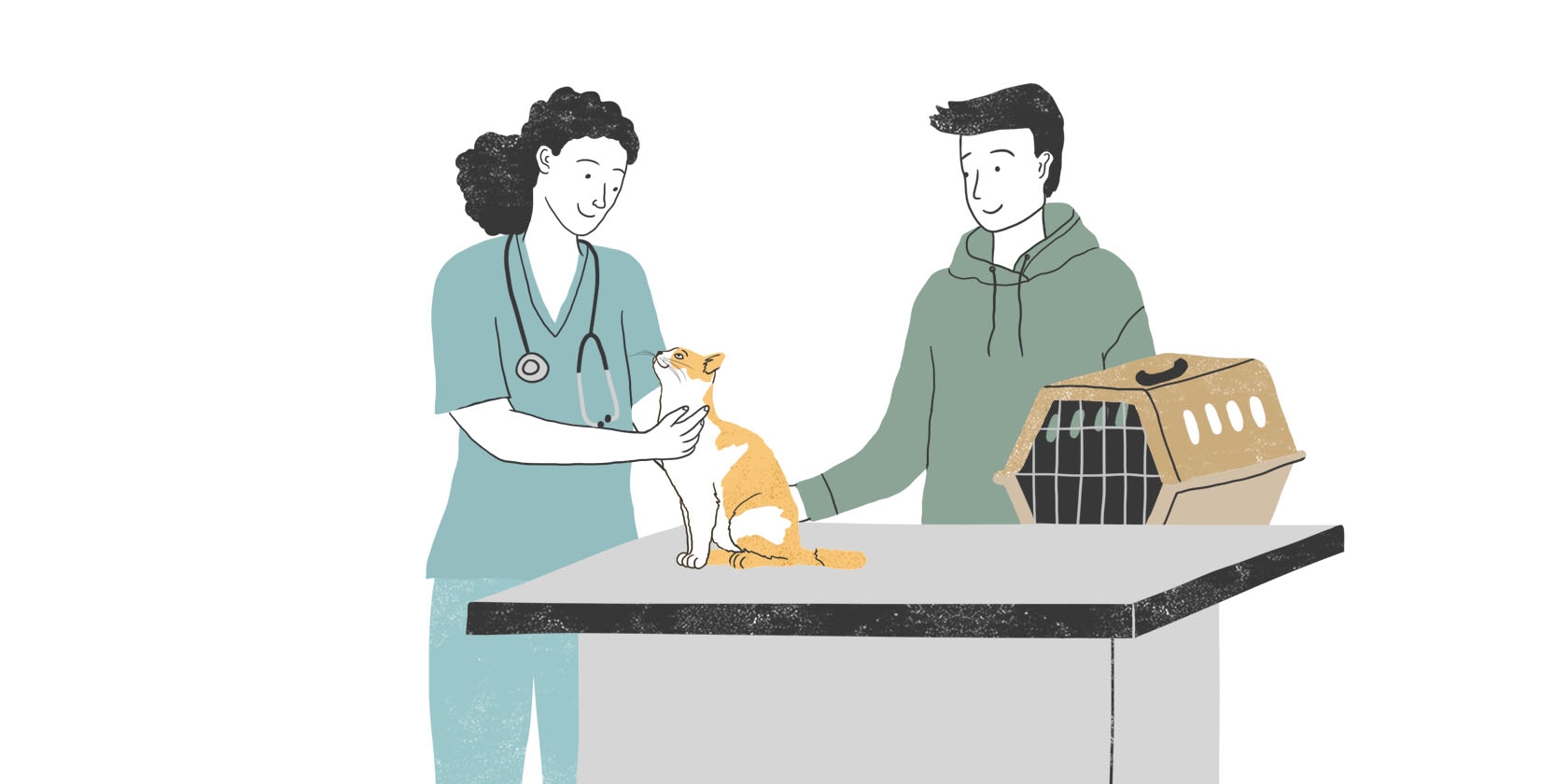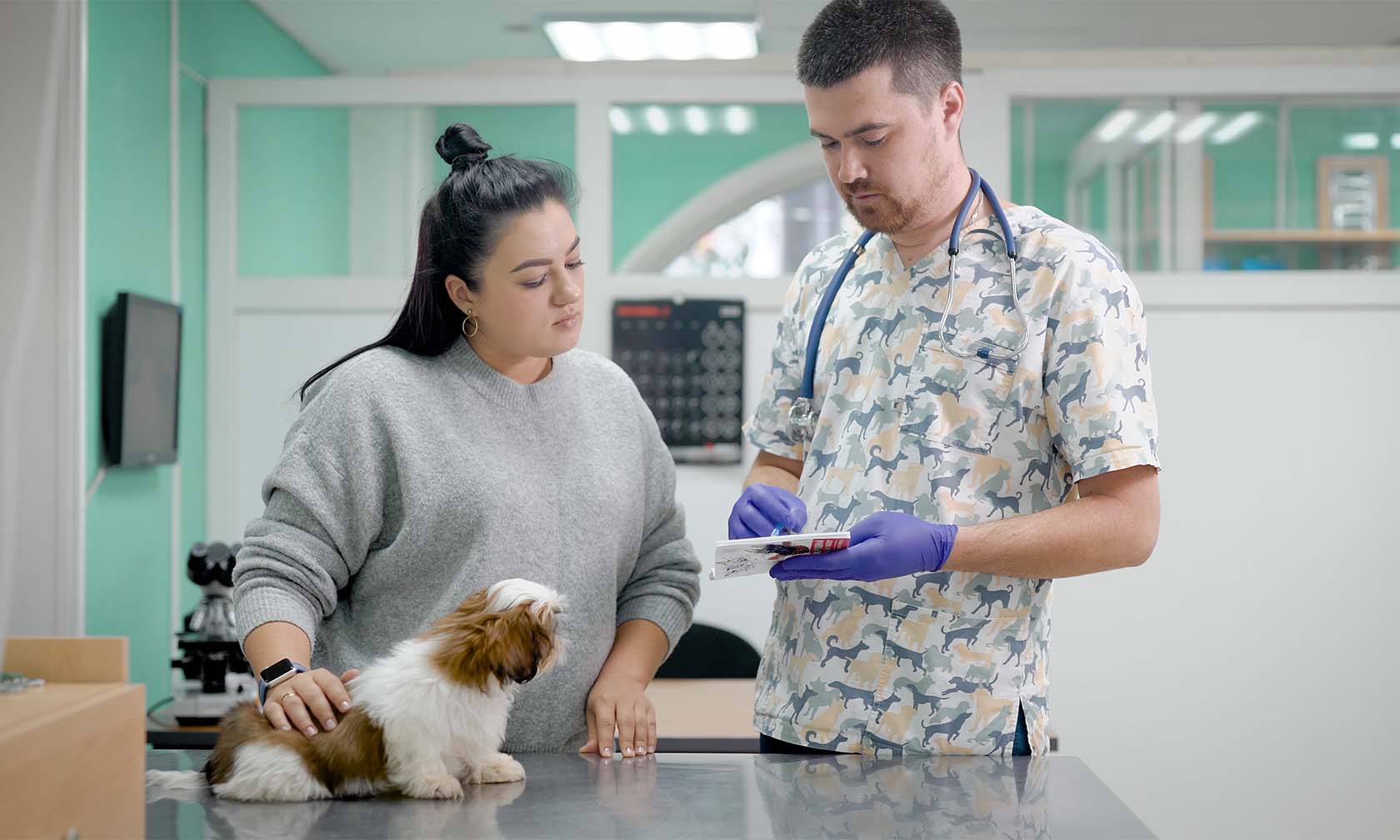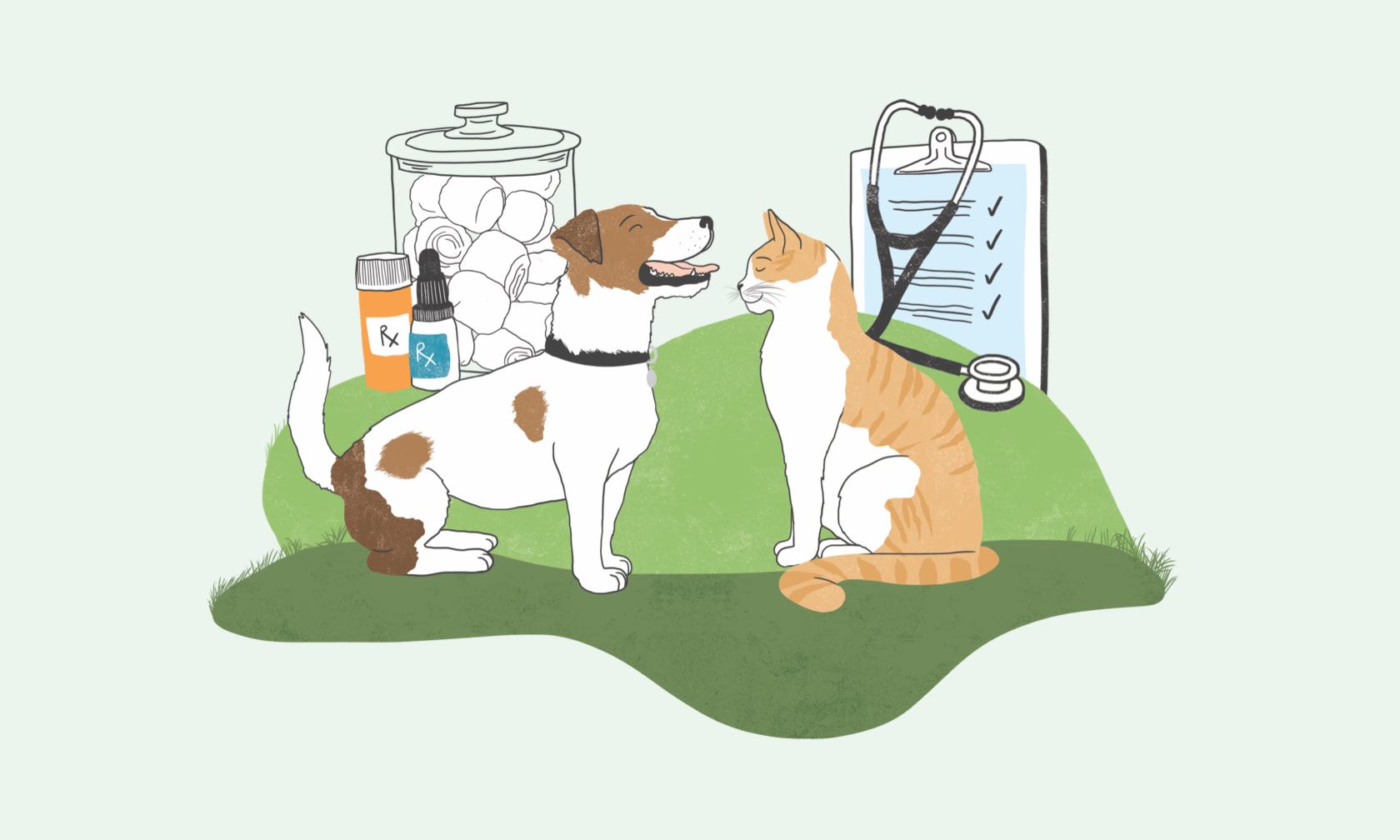It’s important for your pet to see their veterinarian regularly — these check-ups help to ensure your pet is healthy and that any health issues are identified and managed. When you take your pet to the veterinarian, there’s a chance they may be prescribed medication.

Whether a medication is prescribed to prevent parasites, treat an infection, or lessen their pain, you’ll want to know as much as possible about it so you can ensure that you’re administering it correctly and that the medication is having the effect(s) it’s supposed to.
Your veterinarian will discuss why your pet is being prescribed the medication along with dosing directions (like how often to give the medication, the exact dose, and how long your pet needs to take it). They should also advise you of any side effects your pet may have when taking the medication.
These are the questions to ask a vet about your pet’s medication.
Does the Medication Need To Be Taken With Food?
There are some medications that work best when given with food — food aids in absorption of the medication in the gut and/or the presence of food can help to prevent stomach upset. Other medications should not be taken with food as it can minimize the proper absorption of the medication from the gut. If it doesn’t matter, food may help your pet enjoy taking their medicine (or at least make it easier for you to give it to them).
What Do I Do if I Miss Giving a Dose?
Your veterinarian can advise you what to do if you miss a dose of your pet's medication. If getting your pet to take their medicine is difficult, or if it’s tough to give them their medication at the times directed by your veterinarian, there may be another option. There are different formulations, dosages, or medications that may be easier to give or don’t need to be given as frequently.
How Does This Affect the Other Medicines or Supplements My Pet Is Taking?
You may need to adjust the dosage of other medications or supplements that your pet is already taking. Or you may be able to ween them off medication or a supplement — this can be a short or long-term solution.
Because medications can interact with other medications or supplements your pet is taking, it’s extremely important to let your veterinarian know everything you are giving your pet. Even natural supplements can cause issues if mixed with certain medications. They may suggest alternative medications or supplements that don’t interact with the new medication.
What Should I Do if My Pet Hates Taking Pills?
If your pet doesn’t like taking pills or if it’s difficult to give them pills, you can ask if there are other formulations of the medication available. There are many convenient options out there, like injections, chewables, and even topical creams and gels. There may even be longer-lasting options available if multiple times per day, daily, weekly, or monthly dose doesn’t work with your schedule. If you suspect (or know) that your pet has a food allergy, ask if injections may be an allergy-safer alternative to manage your pet’s condition.
What Happens When They Finish the Medication?
Does your pet need to come back in when the course of medication is done? Do they need another blood and/or urine test once they’ve been on the medication for a while? Is this a chronic medication that your pet will need a refill of, or are they simply finishing the medication?
Do They Need To Take All of the Medication?
Antibiotics need to be taken until they’re completely gone, while other medications may be able to be stopped or weened down at some point before your pet finishes them. Your veterinarian can advise you which is the case for your pet.
How Will I Know the Medication Is Working?
There may be obvious signs to look for to tell you that the medication is working (like your pet is no longer limping, or their skin rash is clearing up), but in some cases, progress might not be as obvious. Your veterinarian will tell you what to look for that would indicate that the medication is doing its job, as well as signs to watch for that may indicate that a medication and/or dosage change might be needed.
Other Considerations:
Based on your pet’s age, lifestyle, breed, and what your veterinarian has found on their physical exam and diagnostic tests, your vet may advise your pet to begin taking certain supplements and/or medications (like pain management medications for arthritis) to help them lead healthy and active lives.
Additionally, they will likely recommend preventatives — such as heartworm medication, flea/tick medication, and vaccines (like rabies, parvo, etc.) — to keep your pets protected from preventable diseases and parasites.
ZPC-00421R2



